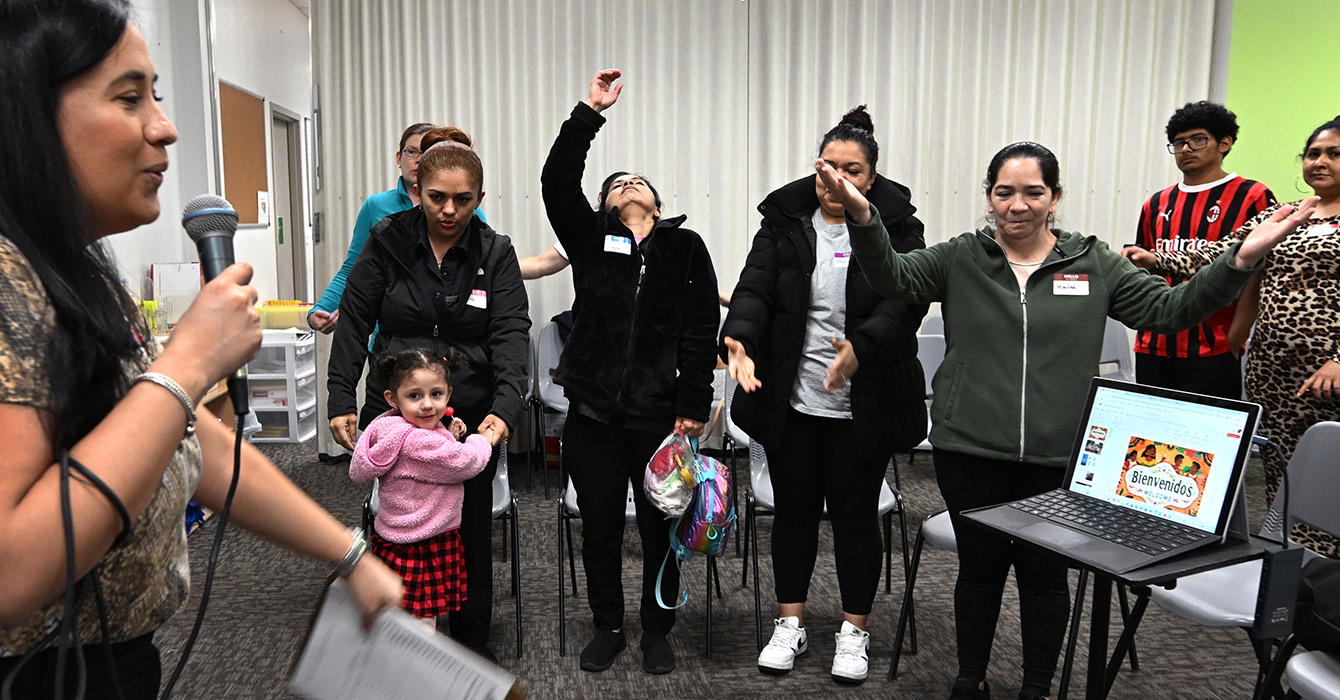Lore at my little Baptist college held that, five years or so post-graduation, recovering religion majors would finally venture off the academic desert island, dipping a toe or two back into the old-time sea of faith, hope and belovedness.
As a recovering English major, it took me nearly as long to venture off my own discipline-specific island. My friends and I shared a sense that highbrow, post-grad reading kept us safe from Hal Lindsey, Jeanette Oke and all the lowbrow authors enshrined in the church libraries we left behind. Simone Weil tried to tell me that Hal and Jeanette’s equal opposites might make for seawalls as impervious as the spackled walls of the church library had once seemed to be. But it took me a while to get her message.
When I finally became desperate for a novel without footnotes, I didn’t run for the Christian fiction that had pleased me as a child. I wanted something easy and entertaining: heartier than Sophie Kinsella, but not as melancholy as Anita Shreve. I remember standing in an airport bookstore, a much-beloved copy of “Anna Karenina” languishing in my bag as I gazed at shelf after shelf of candy-colored book spines. My choice, Curtis Sittenfeld’s much-lauded “Prep,” proved unsatisfying: I squeezed as much enjoyment from its tale of gloomy teenage boarding-school sex as I had from George Eliot’s “Adam Bede.” I wished I could enjoy a book without risking dictionaries, disappointment or despair.
Simone wouldn’t approve of infomercial-esque glee, but I have to tell you that I finally found my fix -- in the young-adult bookstore aisle, which I had begun avoiding about the time I gave up on the church library.
I picked up “Story of A Girl” by Sara Zarr. I was intrigued by Zarr after reading Image journal’s profile of the Christian, young-adult author and her recent National Book Award nomination. Much to my pleasure, “Story of a Girl” was a good story: pleasing language, strong characters and a worthy tale. It was spare and sweet and satisfying in the way that fruit satisfies compared to fructose-flavored knock-offs.
I was hooked, and this year was excited to learn that Zarr’s new novel, “Once Was Lost,” would tell the story she had long wished to write about adolescent crises of faith, a topic familiar to Baptist kids who have spent any stretch of time on any of the aforementioned desert islands.
“Once Was Lost” draws from Zarr’s own background as the daughter of an alcoholic parent who hollered “Happy Birthday, Sara!” as she was drawn up out of the baptismal font.
But the novel is less about teenage chagrin and more about how an adolescent girl manages the charade of her pastor-father’s and alcoholic mother’s public, crumbling marriage.
The book nimbly interweaves the story of Samara Taylor -- whose mother ends up in rehab after a drunk-driving arrest and whose father seems more interested in his congregation than his family -- with the drama of her waning faith, a teenage romance and the story of the kidnapping of a young girl in her hometown. “Once Was Lost” may seem, at first, improbably overstuffed with storylines. But Zarr crafts each with care and humor, and she shows that the best young-adult fiction has the capacity to appreciate readers’ intelligence as well as their tenderness.
Steering clear of both Afterschool Special clichés and trumped-up grittiness, Zarr handles drunken episodes, infidelity and the question of God’s distance with a delicacy that rivals that of any novelist. Its beauty is in its true, full-bodied reflections on human life and relationships. As such it’s exactly the kind of fiction that should be purchased and promoted by the much-maligned and mothballed church library, read as a part of a devotional study in a church youth group or even discussed in an adult Sunday School class.
Zarr has said that she long hoped to write a book involving a character with a sincere but conflicted religious faith, and one describing what it is like to grow up intimately entangled in the institution of the church. This book accomplishes all of that: Like many of us, Samara Taylor moves from thinking like a child to believing like an adult, one who is not afraid to hope and bear tradition even as she encounters the grief and pain of the world around her.









